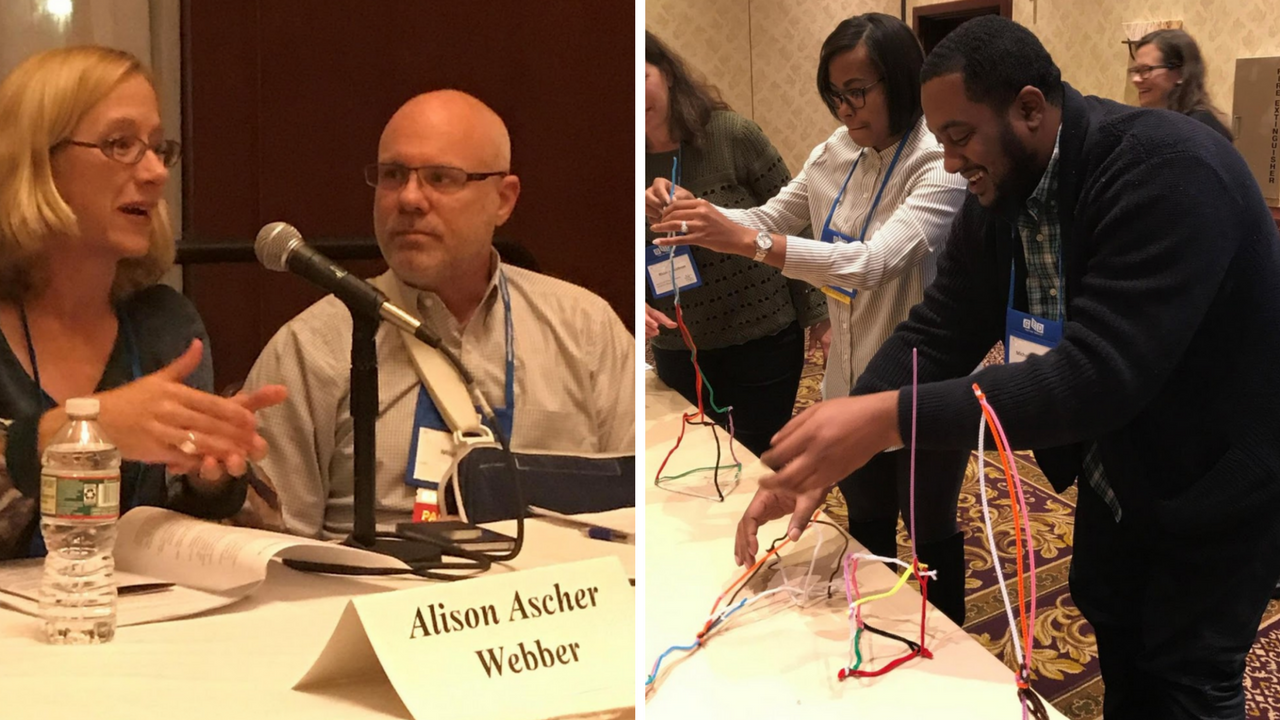Insights and Innovations from the 2017 Conference
The overall theme of NCTN’s 11th annual Effective Transitions in Adult Education was Connect and Engage. The plenary session in particular was dedicated to that theme. John Sarrouf from Essential Partners shared insights and guided experiential exercises to create an inspiring learning experience. During the current climate of disconnection, it was meaningful to have the time to sharpen our abilities to better communicate constructively across our differences, as we strive to be more connected, more resilient, and better partners.
Other topics trending at the conference included educational technology tools and STEM strategies, integrated education and training, competency-based education and hiring, credit for prior learning, and more. The following is a smattering of insights and innovations based on the sessions I attended.
Turns out there’s a right and wrong way to nudge people. Evidence from research in behavioral science supports an approach that sets the “we all do that” norm. This apparently works much better than pointing out the wrong thing, what not to do. So does getting people to commit to do something publicly, like reenroll in classes or finish the first year of college. These are some of the many insights Ross O’Hara from Persistence Plus shared in his workshop. Persistence Plus is a texting software that sends customized, automated texts to college students. It’s a fee-based tool whose impact is being studied in a project involving several colleges. Already they know that college students are more apt to respond to text messages than emails. The text messages also help shape students’ identity as college students and increase their attachment to their college.
At the EdTech Panel, the four dynamic panelists stressed how technology-enhanced,
competency-based education and hiring are beginning to claim more ground allowing adults to get credit and be hired based on what they know how to do rather than on tests or credentials. Mitch Rosin of Aztec Software asserted that “we need to recognize the skill sets people bring and assess them for credit.” Jennifer Hetzel-Silver, Director of Tech Hire RI is convincing tech employers to adopt competency-based hiring practices. Karisa Tashjian, Director of Providence Public Library’s education programs shared information about the library’s innovative Rhode Coders Club—open to anyone with support for English Language Learners—and Data Visualization training.
Alison Ascher Webber, Director of Strategic Initiatives for the EdTech Center @ World Education exhorted us to make sure we’re leveraging the power and potential of technology while choosing solutions that match the objectives rather than technology for technology’s sake. Digital literacy is now a critical skill even for many entry-level jobs. Alison shared how janitors at Google need to know how to use online operations to manage work orders, and soon will need to operate and eventually code robotic vacuum cleaners. They are learning English and new workplace skills on their cell phones. As a national mobile learning expert, Alison pointed to the advantages of mobile learning and mobile coaching.

Another innovative approach focusing on STEM is the new STEM outreach project at LaGuardia Community College in New York City that educates students about viable STEM career options. STEM careers are projected to grow at faster rates than other careers and they pay substantially more. Web developers, computer support specialists, and environmental engineers are in-demand STEM jobs that don’t require a bachelor’s degree. What’s special about this outreach project is their interactive and engaging way of getting the STEM message across that those of us at the workshop experienced firsthand. One hands-on activity was a competition for teams to construct the tallest possible free-standing structure using only pipe cleaners.
Speaking of STEM, I’d love to see the Future Maker Lab in an 18-wheeler truck where students can experience technical jobs virtually on the campus of Wichita Area Technical College in Kansas. A policy panelist, Christopher Stanyer of Goodwill Industries mentioned it in his comments about the Next Step Alliance that includes the college, Goodwill, one-stop career center, employers, and others.
Several presenters at the conference are advancing Credit for Prior Learning (CPL) practices, among them Rhode Island’s new Commissioner of Postsecondary Education, Dr. Brenda Dann-Messier. Under Dr. Dann-Messier’s leadership, her office is setting up Prior Learning Assessment centers at career centers, colleges, and other locations across the state as part of a system-wide policy reform to increase access and accelerate college completion rates. She exhorted adult educators to offer their expertise to higher education commissions in their states to influence policies such as CPL.
Keynote speaker Dr. Martha Kanter, Director of the national College Promise campaign spoke passionately about her work in advocating for tuition-free, public two-year college and paid internships. Several states have joined this campaign. Likewise, financial literacy and savings accounts are important to adults’ ability to persist in college. Dr. Kanter noted that there is something wrong when we spend more money to incarcerate people than to educate them. How about that—maybe we should advocate for parity in funding for incarceration and education?
I have participated in—and staffed—the NCTN conference since we decided to hold a national conference 11 years ago. Once again, I came away better informed and energized, and happy to have connected with old and new friends and colleagues from across the country. See you in Cambridge in November 2018!
Silja Kallenbach
Vice President, World Education, Inc.